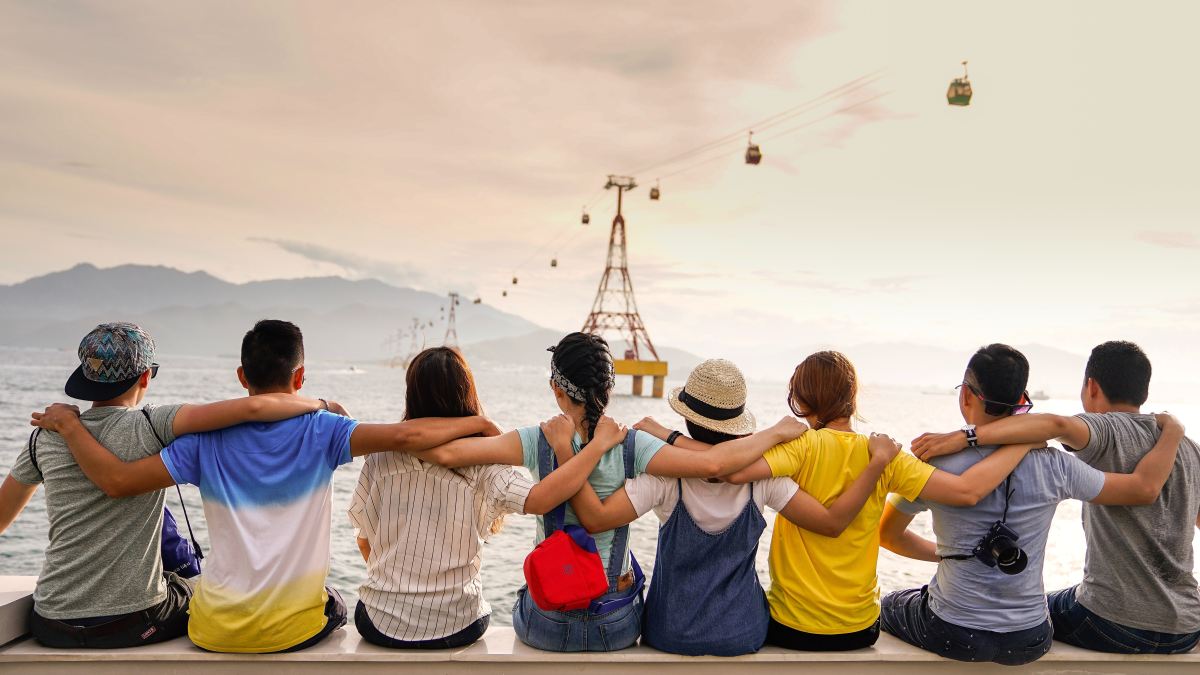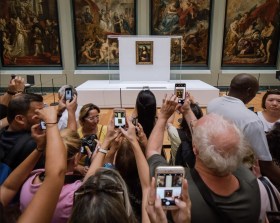World Mental Health Day (WHMD) is Tuesday 10 October. Maybe you’re already sick of hearing about it. Beyond asking each other ‘R U OK?’ what are we supposed to do about a global mental health crisis?
According to the World Health Organisation one in eight people lives with a mental disorder. This figure seems surprisingly low. It’s hard to find someone who isn’t suffering the more common conditions of anxiety, depression or ADHD, let alone schizophrenia, bipolar, PTSD, eating disorders, addictive behaviours and a raft of other mental health conditions.
Established in 1992 at the initiative of the World Federation for Mental Health, WMHD is a day for education, awareness and advocacy against social stigma.
You could argue that we’ve come a long way in the last 30 years in terms of awareness and openness in discussing certain kinds of mental health struggles – especially if they’re photogenic and not too socially awkward or gross. Much of the talk is superficial, glossy and lacking in the detail of real lived experience.
Every organisation wants to name-check its awareness of mental health challenges. But as Heidi Everett, a writer and performer who founded Schizy Inc, one of Australia’s most established disability-led arts organisations for people with complex mental health, writes in ArtsHub’s Amplify Collective article How ‘mental health’ has been reimagined in the workplace, good mental health in the arts won’t happen until we see people with lived experienced enabled and included as leaders and space-makers.
Everett writes: ‘When thinking about accessibility, we tend to think about how to make spaces welcoming to disabled, Autistic, d/Deaf and blind audience members and artists. But does anyone know the tools to create accessible spaces for people enduring the fallout of complex trauma, including that relating to the mental health system if you have a chronic mental illness? I’m seeing a lot of good advice about knowing the symptoms of mental illness and how to “treat” it, but I’m not seeing much going on around embracing and platforming artists, content makers and audiences with mental health disability; that is, fully fledged mental illness – the kind that makes some people uncomfortable at a bus stop, let alone in a workplace. Special mention to you, music industry.’
What is good mental health in a mental world?
According to the World Health Organisation:
‘Mental health is a state of mental well-being that enables people to cope with the stresses of life, realise their abilities, learn well and work well, and contribute to their community. It is an integral component of health and well-being that underpins our individual and collective abilities to make decisions, build relationships and shape the world we live in.’
We keep hearing the same advice on repeat. If you’re suffering, you should seek to tick as many of the following boxes as possible:
- visit a therapist
- meditate
- rest up
- exercise
- seek appropriate medication
- get lots of sunshine and spend time in nature
- eat healthy food
- reach out to friends and family, and
- turn off your phone.
It’s all good advice, in theory.
And, as an arts publication, we’ll also advise you to get creative. Enjoy and participate in music, theatre, reading, writing, painting or some other creative outlet, because research strongly suggests that engaging in the arts promotes good mental health. And when we are being “creative”, our brains release dopamine, a natural antidepressant. Make art, express yourself. Turning pain into art is almost a cliché, but it’s a good one, and as Everett cheekily writes, ‘It’s OK to be mentally ill, just make sure you make art with it and invite your psychiatrist to the show (at full price).’
Of course, enjoying the arts assumes a degree of health, leisure and discretionary income.
What does mental health look like when you’re in physical pain or terminally ill? Or if you haven’t slept for months caring for a new baby? What if you’re living in a war zone or totalitarian regime?
What does mental health mean as we face climate emergency? Surely anxiety is the appropriate response to imminent extinction?
And how do you stay centred and calm in the midst of a housing affordability crisis when you’re one payslip away from eviction or mortgage default?
Here’s the truth. It’s hard to do the right things for your mental health when therapists are booked out and cost $150 a session, or you can’t find a bulk-billed GP appointment without two weeks’ notice.
It’s hard to find time to exercise when you need to work every hour of the day just to feed your kids, who by the way, are also suffering from poor mental health – with new statistics showing that about a third of Australian young people have been mentally unwell in the last 12 months.
Mental health is a universal human right
In short, mental health is social, economic and environmental, and solving mental health problems requires a redistribution of priorities and resources by governments, businesses and organisations.
The theme for this year’s World Mental Health Day is ‘Mental health is a universal human right’ – an acknowledgement that while we philosophically maintain that every human being is fundamentally equal, like every other kind of healthcare, healthcare for brains and souls is unequally distributed between countries and within societies.
Read: Mental health for creative people: how to thrive
The World Health Organisation also wants the focus in 2023 to be on the human rights of those who are receiving care, stating:
‘Having a mental health condition should never be a reason to deprive a person of their human rights or to exclude them from decisions about their own health. Yet all over the world, people with mental health conditions continue to experience a wide range of human rights violations. Many are excluded from community life and discriminated against, while many more cannot access the mental healthcare they need or can only access care that violates their human rights.’
For those of us who are able, this year’s WMHD is a chance to think big, beyond “mindfulness”, “wellness” and our individual pursuit of relief or happiness. It’s a chance to look at systems that may be causing people to be sick, or stopping them from getting care when they need it.
And while it’s always essential to take responsibility and make good choices for our own mental health – we’re not dissing meditation – it’s also a massive relief to stop blaming ourselves for being sad, tired, poor and screen-addicted.
There are larger forces at play. It’s time to get political.
Some revolutionary ideas for improving mental health
- join a choir
- join your union
- join the board of an organisation and drive change from within
- write a letter to an editor or politician
- vote
- make art that truly connects
- buy art and support the makers to keep on making
- employ an artist in your organisation
- uplift the people around you with kindness and encouragement, and
- listen and learn, and pass it on.
#WorldMentalHealthDay
If this article has raised issues for you, or if you’re concerned about someone you know, please call Lifeline on 13 11 14.





